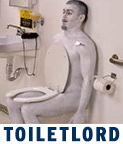|
Has this thread touched on UberRush at all? The on-demand courier app thing they've had going on in a few cities, including here in NYC. They're applying the same business model to people on bikes and it's pretty hosed up. It's a dangerous business and the fact that they're not providing worker's comp is crazy. Most couriers aren't especially rolling in money and getting hurt on the job can take you out of commission for weeks or months, and the fact that Uber is willing to just throw their hands up and go "well as an independent contractor maybe you should've thought of that before getting hurt on the job, hmmmmm?" instead of paying for it is just so slimy. They don't bother providing any training or even require helmets. They just rope a bunch of kids off the street promising decent pay and kick them to the curb as soon as they're no longer useful. Like, I work for a big courier company and while we do some shady financial stuff to avoid getting hosed over by insurance, we actually care about our employees. Even if you're some deadbeat who worked two weeks, did five runs, and got flattened by a taxi on your way to the sixth we'll still take care of you until you're better. We might fire you after that but it's a company's responsibility to care for the people making it money, damnit.
|
|
|
|

|
| # ? May 15, 2024 20:44 |
|
Kit Walker posted:it's a company's responsibility to care for the people making it money, damnit. The problem is that a lot of very rich people have a pretty big interest in eliminating that. Especially with the economy hurting as it is now; for every person you break there are probably ten more desperate for the hours.
|
|
|
|
ToxicSlurpee posted:The problem is that a lot of very rich people have a pretty big interest in eliminating that. Especially with the economy hurting as it is now; for every person you break there are probably ten more desperate for the hours. The irony there is that that's ALREADY how courier companies work. If you skip a rainy day or lose a package, you'll get canned immediately because there are countless people willing to do the job that don't suck, and consequently we have an extremely high turnover rate with just a small core group that's been doing the job for years. We just don't skimp on paying for injured workers because it's unethical as gently caress. It's one of them most basic aspects of the social contract. Don't gently caress over the people who helped you.
|
|
|
|
Kit Walker posted:The irony there is that that's ALREADY how courier companies work. If you skip a rainy day or lose a package, you'll get canned immediately because there are countless people willing to do the job that don't suck, and consequently we have an extremely high turnover rate with just a small core group that's been doing the job for years. We just don't skimp on paying for injured workers because it's unethical as gently caress. It's one of them most basic aspects of the social contract. Don't gently caress over the people who helped you. Paying for injured workers costs money and makes insurance costs go up. Some rich guy is going to look at that and think "how do I eliminate this expense?" and a way to do that is to make sure you don't pay that cost, social contract be damned. It's kind of the inherent problem with "everybody is a contractor now" and the gig economy. It treats people as tools to be used until broken and thrown away.
|
|
|
|
Subjunctive posted:Sure, do whatever it is you do to oppose them. Just be honest that you're targeting them specifically because they're brash and have an app, because the taxi industry has had the same employment model for decades with nary a peep. Most suggestions for Uber alternatives were either "better public transportation" or "just get a loving Designated Driver".
|
|
|
|
Kit Walker posted:Like, I work for a big courier company and while we do some shady financial stuff to avoid getting hosed over by insurance, we actually care about our employees. Even if you're some deadbeat who worked two weeks, did five runs, and got flattened by a taxi on your way to the sixth we'll still take care of you until you're better. We might fire you after that but it's a company's responsibility to care for the people making it money, damnit. Emphasis mine. Firing someone because they got injured (especially on the job) is extremely questionable, on top of being unethical... I'd run that by an employment lawyer.
|
|
|
|
DeadlyMuffin posted:Emphasis mine. Firing someone because they got injured (especially on the job) is extremely questionable, on top of being unethical... I'd run that by an employment lawyer. The phrasing made me think of letting someone go who hosed up after they're healed if the gently caress up was what injured them. Like at my company you don't get immunity from violating our safety rules just because doing so hurt you. An example I recall was a guy who was on a decent track did something very stupid that pretty much cost him his hand, and initially tried to cover up what really happened. So we paid for his recovery, but sure as hell demoted him when he could come back to work making it clear we could never put someone with a mark like that on his record back in a supervisor role. He didn't want the demotion so was let go.
|
|
|
|
I'm glad Uber never took of here. Taxis were already using an app (hailo) that allows you to see where the nearest ones were and hail them to your area. And when uber did try move into the market they couldn't circumvent the regulation in place to keep taxis from saturating and causing excess traffic. They were only able to hire licenced taxi drivers. Not sure why America and other countries let them bypass regulation.
|
|
|
|
Marenghi posted:I'm glad Uber never took of here. Taxis were already using an app (hailo) that allows you to see where the nearest ones were and hail them to your area. In America, we deeply believe that if you are clever, you can do more with less. Therefore, if someone is claiming to do more with less, then you would have to be stupid to object to what they are doing.
|
|
|
|
I would attribute that more to greed than some sort of patriotic boosterism. ... which might be the same thing for some people, I suppose.
|
|
|
|
Subjunctive posted:Sure, do whatever it is you do to oppose them. Just be honest that you're targeting them specifically because they're brash and have an app, because the taxi industry has had the same employment model for decades with nary a peep. Sure, it's by and large the same employment model. My problem with that, though, is that Uber is being lauded as "disruptive" and "innovative" for that exact same model. Nobody's going to argue that regular taxi drivers being contractors is anything great, but somehow Uber's model is amazing. Praising a system that hurts its workers pisses me off.
|
|
|
|
Subjunctive posted:Sure, do whatever it is you do to oppose them. Just be honest that you're targeting them specifically because they're brash and have an app, because the taxi industry has had the same employment model for decades with nary a peep. There is not "nary a peep" as this employment model in the taxi industry (in NYC) has consistently been the target of regulation and reform, and in its current state is a far cry from the model embraced by Uber. Personally, I would like to see it move even closer to a standard employment model; but knowing that probably isn't in the cards, it should at least be held to the same standards as the local taxis. And 1099 is but one of many sins embraced by Uber in the eyes of people in this thread.
|
|
|
|
Mozi posted:I would attribute that more to greed than some sort of patriotic boosterism. Karia posted:Sure, it's by and large the same employment model. My problem with that, though, is that Uber is being lauded as "disruptive" and "innovative" for that exact same model. Nobody's going to argue that regular taxi drivers being contractors is anything great, but somehow Uber's model is amazing. Praising a system that hurts its workers pisses me off. Is it really that hard to understand? Taxi and livery service in a lot of the US is slow (takes a long time to get a car), expensive, and the rides are of lovely quality. Service could stay bad because of high capital costs to enter (buying and maintaining the cars, etc) and regulatory barriers that kept new traditional companies from coming in and competing. Uber brought better service at lower prices to a ton of places by turning personal vehicles into capital and saying gently caress you to the rules protecting fat cat incumbents at the expense of consumers. That is an amazing model. As far as hurting workers, why do so many drivers continue to drive for Uber? Are they dumb? Are shut-in goons doing back-of-the-napkin math based on cursory internet research more capable of figuring out what's in Uber drivers' best interests than the actual Uber drivers are?
|
|
|
|
wateroverfire posted:As far as hurting workers, why do so many drivers continue to drive for Uber? Are they dumb? Are shut-in goons doing back-of-the-napkin math based on cursory internet research more capable of figuring out what's in Uber drivers' best interests than the actual Uber drivers are? 1) It's a lot less than you think, they have an amazing churn rate. 2) They're poor enough and government aid is hard to get, so people will do anything to be able to feed their family, but then I remember that you think that's a good thing.
|
|
|
|
I always figured it was people who were under employed and had odd chunks of time to fill.
|
|
|
|
Marenghi posted:I'm glad Uber never took of here. Taxis were already using an app (hailo) that allows you to see where the nearest ones were and hail them to your area. Hailo actually tried to move in to the US but failed because Uber was already big enough to eat their lunch at that point. Hailo pulled out as a result.
|
|
|
|
Panfilo posted:I always figured it was people who were under employed and had odd chunks of time to fill. For a lot of people, it is. Or it's something to do for awhile while they look for something else. Very few Uber drivers see Uber as their career. duz posted:2) They're poor enough and government aid is hard to get, so people will do anything to be able to feed their family It's just a job, dude. Sometimes people take jobs because they need money and that's ok.
|
|
|
|
ducttape posted:In America, we deeply believe that if you are clever, you can do more with less. Therefore, if someone is claiming to do more with less, then you would have to be stupid to object to what they are doing. "Work smarter, not harder!" Panfilo posted:I always figured it was people who were under employed and had odd chunks of time to fill. Another vile thing Uber does is that they provide insurance that steps in to cover the gap after your car insurance kicks in ... without telling drivers that providing a livery service, which is how the insurance company regards Uber driving, will void your car insurance.
|
|
|
|
wateroverfire I don't think I was saying what you think I was saying... but in any case, it's true that the taxi industry is a rent-seeking protectionist racket that benefits medallion owners and screws customers. I don't hate Uber in concept but they could do a lot more for people who work for them.
|
|
|
|
Mozi posted:wateroverfire I don't think I was saying what you think I was saying... but in any case, it's true that the taxi industry is a rent-seeking protectionist racket that benefits medallion owners and screws customers. I don't hate Uber in concept but they could do a lot more for people who work for them. A hypothetical startup that challenged Comcast with individuals competing for bids to lay fiber, with the quality of said installation being monitored by user downvotes, and with no individual having bonds or contractor licenses, would not be better for the town, even if it's better short-term for the fiber-layers and cheaper for the residents. Are builders in the Home Depot parking lot hiring day laborers who are paid off the books "disruptive"?
|
|
|
|
Panfilo posted:I always figured it was people who were under employed and had odd chunks of time to fill. That's what the companies want you to think. The numbers tend to show a different story which is why they fight so hard to keep from releasing those numbers. Arsenic Lupin posted:A hypothetical startup that challenged Comcast with individuals competing for bids to lay fiber, with the quality of said installation being monitored by user downvotes, and with no individual having bonds or contractor licenses, would not be better for the town, even if it's better short-term for the fiber-layers and cheaper for the residents. Are builders in the Home Depot parking lot hiring day laborers who are paid off the books "disruptive"? You forgot part of this analogy, the people laying the fiber are not filing right of ways so they're just making things harder for the people obeying the rules and anyone else after them. duz fucked around with this message at 16:52 on May 10, 2016 |
|
|
|
Arsenic Lupin posted:Comcast is a monopolistic business that provides terrible service because they are the sole provider in many areas. (Mine's been down or trickle-slow since Thursday. "We're working on it.") It consistently wins consumerist.com's website for most hated company in America. OK, I think we probably agree? There is some as-of-yet unknown better option between a monopoly and a complete lack of regulation.
|
|
|
|
Arsenic Lupin posted:Comcast is a monopolistic business that provides terrible service because they are the sole provider in many areas. (Mine's been down or trickle-slow since Thursday. "We're working on it.") It consistently wins consumerist.com's website for most hated company in America. But that's because laying fiber involves things like tearing up streets to lay cable and stringing additional lines, which imply problems for the town that have no analogs in the Uber situation. An analagous startup would be like...a company that contracted with you to buy your unused Comcast bandwidth so it could bundle and resell it to non-subscribers as on-demand broadband or something. And the on-demand broadband is faster and more reliable than Comcast service. Arsenic Lupin posted:Are builders in the Home Depot parking lot hiring day laborers who are paid off the books "disruptive"? No, because that's been a standard business model for construction companies since forever! duz posted:That's what the companies want you to think. The numbers tend to show a different story which is why they fight so hard to keep from releasing those numbers. The last time they released numbers it did in fact seem to be the case, though? Do you have sources besides that?
|
|
|
|
wateroverfire posted:But that's because laying fiber involves things like tearing up streets to lay cable and stringing additional lines, which imply problems for the town that have no analogs in the Uber situation. An analagous startup would be like...a company that contracted with you to buy your unused Comcast bandwidth so it could bundle and resell it to non-subscribers as on-demand broadband or something. And the on-demand broadband is faster and more reliable than Comcast service.
|
|
|
|
Arsenic Lupin posted:"Work smarter, not harder!" Regarding Air BnB, I'm curious if it's really more profitable to buy a house and rent it out this way vs just leasing it to people on year to year leases like people already do. Or is this just some retarded loophole where they buy a motel but aren't subject to the same bylaws and regulations? Whose getting screwed over in that scenario?
|
|
|
|
Panfilo posted:Regarding Air BnB, I'm curious if it's really more profitable to buy a house and rent it out this way vs just leasing it to people on year to year leases like people already do. Or is this just some retarded loophole where they buy a motel but aren't subject to the same bylaws and regulations? Whose getting screwed over in that scenario? The people who are doing it seem to think it's more profitable. quote:Airbnb is also releasing data on hosts in its hometown, which it shared with The Chronicle. The numbers show that 1,149 listings, or a fifth of all full-home rentals here, are controlled by hosts who rent more than one entire home via the site. Since local law restricts vacation rentals to permanent residents offering their own home, listing multiple properties is a red flag.
|
|
|
|
Arsenic Lupin posted:The fiber-laying is an analogy, not an identity, as you point out. However, if a town has an interest in keeping the streets un-torn-up, it also has an interest in making sure that people who drive-for-hire know more about driving than private commuters. See "Taxi & Chauffeur Licenses in CA" here here. Los Angeles requires a thorough background check and a written test. Uber drivers in LA don't have to provide either of those, and there's evidence in multiple places of Uber driving background checks being inadequate. I think there's some interest in making sure vehicles are regulated for safety and that drivers aren't scam artists, but how much of the regulation is doing that as opposed to setting up a barrier of entry to protect established cab companies? The LA requirements, for instance require the endorsement of a taxi franchise to get permitted and that freezes out independant operators. And official licensing doesn't seem to guarantee good experiences. I have been overcharged for trips in cabs from drivers who tried to take the long way around to pad the fare (happens all the time to me), from some who tried to negotiate an up-front fee more expensive than the trip would be if metered (happens a lot), from a couple who outright tampered with their meters, etc. I've been in licensed cabs that were falling apart but somehow passed inspection (I hope). Most of my cab experiences have been fine...but so have all of my Uber experiences. I think by and large that private commuters are savvy enough to handle driving people around, and Uber's fare system keeps them more honest than many cab drivers. I can say similar things about AirBNB. Ostensibly AirBNB hosts are flauting hotel regulations, and that's bad. But I have stayed in more hotels and motels than I ever wanted to that were dirty, insecure, sprug surprise charges, etc, while most of my AirBNB experiences have been positive while also being cheaper and providing a better service (whole apartment or house for me and my guests instead of a room or suite) that in many ways is more secure (because a bunch of strangers aren't passing through and no one is coming into the space while I'm not there). So from a user's perspective, who cares if they are violating the law? The law is doing nothing good for me.
|
|
|
|
"I have had bad experiences in regulated businesses, therefore regulations don't matter" is like "I got mugged, therefore laws against assault don't matter". In any case, you could set up a business that competed against the dirtiness, unreliability, and so on of hotels while still complying with the zoning, fire exit, and accessibility standards that apply to hotels. The problem is that the business wouldn't be cheaper any more, because sprinklers, multi-zoned properties, and accessibility cost money. Sure, your average Uber driver is friendlier, the car is cleaner, and the service is more reliable than your average taxi. The end-user experience, assuming your driver isn't a violent criminal or somebody with multiple driving violations, is pretty great. There is more than end-user experience to running a business. This is why regulations exist. For instance, if I live in an apartment, and the apartment above me is rented on AirBNB full-time, the AirBNB renters are happy. I, meanwhile, am coping with more traffic in the halls at odd hours of the night, more noise (because short-term renters don't have any reason to stay on good terms with the neighbors), and very likely more physical damage to common areas. San Francisco, which has nowhere near enough long-term housing, is having its housing market further depleted by people running illegal hotels out of residential property. Note: I live in a detached suburban home. This is the hypothetical "I".
|
|
|
|
Arsenic Lupin posted:"I have had bad experiences in regulated businesses, therefore regulations don't matter" is like "I got mugged, therefore laws against assault don't matter". There is also "regulation that creates barrier to competition is the result of corrupt Big Taxi" and not "it is possible someone died because of this" or "labor protects that are the result of decades of fighting." I will be the first to admit that regulation of taxi services are often written to protect entrenched services, but they are also the product of decades of discovery in how to protect customers and labor from harmful practices. It is not as if Uber is some scrappy little guy who is looking to cut corners on thin margins, they have a ton of weight and capital to throw around.
|
|
|
|
wateroverfire posted:I can say similar things about AirBNB. Ostensibly AirBNB hosts are flauting hotel regulations, and that's bad. But I have stayed in more hotels and motels than I ever wanted to that were dirty, insecure, sprug surprise charges, etc, while most of my AirBNB experiences have been positive while also being cheaper and providing a better service (whole apartment or house for me and my guests instead of a room or suite) that in many ways is more secure (because a bunch of strangers aren't passing through and no one is coming into the space while I'm not there). So from a user's perspective, who cares if they are violating the law? The law is doing nothing good for me. Except for when things go wrong and they didn't have proper insurance, or how much easier it is for the regulators to enforce/catch a public facing and licensed hotel violating safety and sanitation ordinance than a secret hotel only open occasionally. In the same way I've had some much tastier meals cooked in people's homes than McDonalds, and I'm sure there's some fast food places not following health and safety code, but that's not an argument for why everyone should be able to sell food made in their kitchens and 'disrupt' rules about food handling and prep. Hell both the airbnb and uber examples do have damage to a public good making them analogous to the disruptive cable laying example. Besides wear and tear on roads, air quality is affected. air resource boards have more practical room for fleet regulation telling a taxi or freight company "You can only put out X tons of CO2" vs consumer car use. Airbnb has harmed the housing/rental inventory in urban areas like LA, where we've seen rent controlled units taken off the market to instead lease out as short term rentals.
|
|
|
|
I am really kicking myself I didn't go buy some dump in Palo Alto, put in a maze of baby gates and rent out every room, closet, and attic space to techbros. I probably could've already paid it off, even with Bay Area housing prices.
|
|
|
|
Arsenic Lupin posted:"I have had bad experiences in regulated businesses, therefore regulations don't matter" is like "I got mugged, therefore laws against assault don't matter". I mean...not really? Running a hotel is a very different type of endevour from short-term renting an apartment unit and applying the same regulations doesn't make sense, or offer me any more security over for instance staying at a friend's place. The codes that govern the construction of apartment buildings are adequate to ensure the safety of single-unit operations, and AirBNB has a reputation system that encourages hosts to keep their spaces tidy and inviting (also, AirBNB will compensate you if something's amiss). Arsenic Lupin posted:Sure, your average Uber driver is friendlier, the car is cleaner, and the service is more reliable than your average taxi. The end-user experience, assuming your driver isn't a violent criminal or somebody with multiple driving violations, is pretty great. There is more than end-user experience to running a business. This is why regulations exist. For instance, if I live in an apartment, and the apartment above me is rented on AirBNB full-time, the AirBNB renters are happy. I, meanwhile, am coping with more traffic in the halls at odd hours of the night, more noise (because short-term renters don't have any reason to stay on good terms with the neighbors), and very likely more physical damage to common areas. San Francisco, which has nowhere near enough long-term housing, is having its housing market further depleted by people running illegal hotels out of residential property. You could equally have loud neighbors, or neighbors with houseguests over all the time. Your recourse would be the same, wouldn't it? How much extra traffic does one family short-term occupying a unit cause vs one renting longer term, anyway?
|
|
|
|
Panfilo posted:I am really kicking myself I didn't go buy some dump in Palo Alto, put in a maze of baby gates and rent out every room, closet, and attic space to techbros. I probably could've already paid it off, even with Bay Area housing prices. "Looks like rents going up again" *counts money sadly*
|
|
|
|
wateroverfire posted:I mean...not really? Running a hotel is a very different type of endevour from short-term renting an apartment unit and applying the same regulations doesn't make sense, or offer me any more security over for instance staying at a friend's place. quote:The codes that govern the construction of apartment buildings are adequate to ensure the safety of single-unit operations, quote:You could equally have loud neighbors, or neighbors with houseguests over all the time. Your recourse would be the same, wouldn't it? How much extra traffic does one family short-term occupying a unit cause vs one renting longer term, anyway? If I walk upstairs and talk to an AirBNB renter, they don't care what I think, because they don't have to listen to what the landlord says: they'll be gone in a week anyway. A short-term guest has no incentive at all to be a responsible neighbor. In any case, there is a difference between residential zoning and hotel zoning because the law acknowledges that living next to/above a hotel is different from living next to a single family. AirBNB is flouting numerous laws regarding hotels, but claiming to offer a better experience than a hotel. If you're operating a business that competes with hotels, you ought to be playing by the same rules. As archangelwar pointed out, all these regulations were created in response to injustices and actual tragedies.
|
|
|
|
Coolness Averted posted:Except for when things go wrong and they didn't have proper insurance, or how much easier it is for the regulators to enforce/catch a public facing and licensed hotel violating safety and sanitation ordinance than a secret hotel only open occasionally. In the same way I've had some much tastier meals cooked in people's homes than McDonalds, and I'm sure there's some fast food places not following health and safety code, but that's not an argument for why everyone should be able to sell food made in their kitchens and 'disrupt' rules about food handling and prep. In reference to apartments, we're talking about units built for people to live in, that have had people living in them, and where actual people do in fact live much of the time. If they're not too deathtrappy to be occupied 24/7 by a long term tenant, what are you worried is going to happen if you're there for a week? In reference to food, much like hotels, there are considerations that apply to running an industrial kitchen that just don't apply to having someone over for dinner or having house guests for a bit. Coolness Averted posted:Hell both the airbnb and uber examples do have damage to a public good making them analogous to the disruptive cable laying example. Besides wear and tear on roads, air quality is affected. air resource boards have more practical room for fleet regulation telling a taxi or freight company "You can only put out X tons of CO2" vs consumer car use. Seems like a stretch. A ride that happens on Uber is a ride that, presumably, was going to happen anyway through another channel. Where is the saving on road maintinence or air quality? And it's not AirBNB loving over the housing markets in LA and San Fran.
|
|
|
|
wateroverfire posted:I mean...not really? Running a hotel is a very different type of endevour from short-term renting an apartment unit and applying the same regulations doesn't make sense, or offer me any more security over for instance staying at a friend's place. The codes that govern the construction of apartment buildings are adequate to ensure the safety of single-unit operations, and AirBNB has a reputation system that encourages hosts to keep their spaces tidy and inviting (also, AirBNB will compensate you if something's amiss). About that safety arguement... https://medium.com/matter/living-and-dying-on-airbnb-6bff8d600c04#.r4nz7s608 quote:The rope swing looked inviting. Photos of it on Airbnb brought my family to the cottage in Texas. Hanging from a tree as casually as baggy jeans, the swing was the essence of leisure, of Southern hospitality, of escape. When my father decided to give it a try on Thanksgiving morning, the trunk it was tied to broke in half and fell on his head, immediately ending most of his brain activity.
|
|
|
|
Uber pulls out of Austin because Austin won't repeal regulations (warning: autoplay)quote:In a dispute that could play out in other cities, Uber and Lyft say new rules required on them in the Austin area, including fingerprinting of drivers, makes it hard for them to continue to follow their business models. The pullback becomes a de facto victory for the taxicab industry, which has seen ride-sharing services turn their business on its ear around the country.
|
|
|
|
ducttape posted:In America, we deeply believe that if you are clever, you can do more with less. Therefore, if someone is claiming to do more with less, then you would have to be stupid to object to what they are doing. I wish I could find the story but there was something about a company in Houston, I think, that way underbid all the other contractors for a road construction project; the project moved forward for years with no progress and ultimately they had to admit they couldn't do it for the price quoted because they didn't take into account they would have to dig through rock and not dirt.
|
|
|
|
I live in an old six-unit apartment building, and two of the units are leased by a woman who runs them strictly as AirBNB rentals. It's incredibly annoying - people coming in loudly at weird hours, knocking suitcases up and down, loving up the parking situation, etc.. I imagine it brings in plenty of money for the woman who runs the operation, but it's awful for the rest of us.
a foolish pianist fucked around with this message at 01:02 on May 11, 2016 |
|
|
|
|

|
| # ? May 15, 2024 20:44 |
|
Zikan posted:About that safety arguement... So are you sure you think airbnb is liable for this sort of stuff? Is craigslist liable if it facilitated the identical transaction? I'm certainly not sure I think either airbnb or uber is liable for everything that happens after they help facilitate a transaction. It's not entirely different than, say, an internet forum or hosting service which may knowingly profit from illegal or distasteful activity but yet rightfully has some protection from the actions of its users.
|
|
|
































